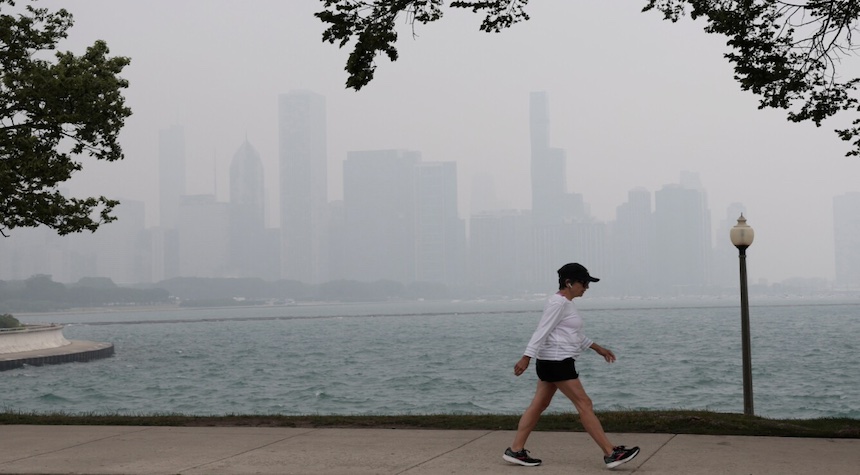Chicago experienced a brief but severe air quality crisis on Thursday, temporarily registering the worst air quality in the world according to global rankings from IQAir. This unprecedented situation demands our attention and careful examination.
Heavy smoke from Canadian wildfires in Saskatchewan and Manitoba drifted across the Midwest, enveloping Chicago in a blanket of pollution. The Chicago Sun-Times and The Washington Post both report that the city’s air quality index reached “unhealthy” and even “dangerous” levels during this period.
Major U.S. cities, including Minneapolis and Detroit, also ranked among the worst globally for air quality during this event. This suggests a widespread impact across the region, raising important questions about our preparedness for such environmental crises.

A stagnant high-pressure system trapped the smoke across the Midwest, exacerbating the situation. It’s crucial to note that while Chicago’s air quality did briefly rank as the world’s worst, this was an anomaly tied directly to the wildfire smoke, not the city’s typical conditions.
The evidence suggests that such events may become more frequent. Climate change authorities, as reported by The Washington Post, warn that intensifying wildfire seasons could make severe air quality incidents more common in the future. This raises significant concerns about long-term public health and environmental policies.
The situation remains fluid, and we will continue to monitor developments closely. As always, staying informed is our best defense against the challenges we face.

